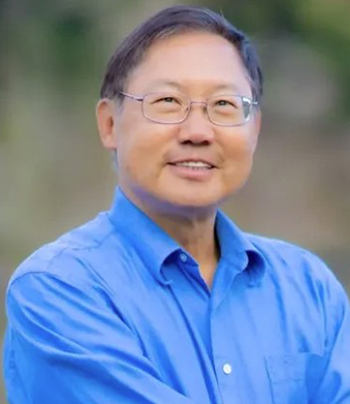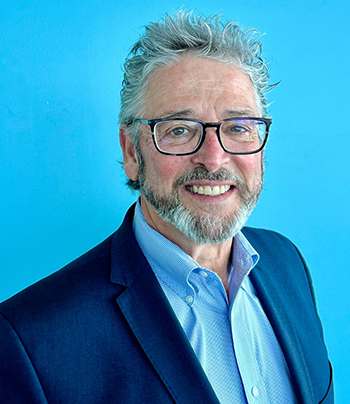By Kai Curry
NORTHWEST ASIAN WEEKLY
The Port of Seattle is unique in the United States. It includes the Port itself, now juggling cruise ships, along with container ships, and Sea-Tac Airport. On top of that, the Port of Seattle is the only Washington state government entity that generates income apart from taxes. Controversy surrounds the running of the Port and heats up during every Port commission race. This year, Port Commission Position 5 will be open. Fred Felleman, the incumbent, strongly believes he has the right to stay, and to see the fruits of his labor at the Port so far. Newcomer to the Port, but not to Seattle or business, Jesse Tam believes it’s time for a sea change in the way things are done.
At the August 2023 primary, Tam’s 25.63% beat out competitor Todd Curtis and earned him the right to proceed to the November election. Felleman’s vote count was double Tam’s at 56.52%. Felleman is a nautical man and a scientist. Tam is a businessman. Both bring expertise to the table. Both have demonstrated career longevity—Tam in his career as a banker, and Felleman in the Port itself. Both are older men with experience and background. To Felleman, as the incumbent and the most senior commissioner on the Port, this is a sticking point.
“You have that tenure that gives you the knowledge. You’ve already sort of established your base and gotten to know your way around,” explained Felleman. The Port of Seattle is complicated. In addition to those aspects already listed above, the Port encompasses a fishing fleet, waterfront improvements, and an alliance with the Port of Tacoma. It’s also important to note that commissioners are elected and are part-time volunteers. Their input is vital, but limited.
An executive director leads the Port. One of Felleman’s complaints about the Port’s prior executive director was a corporate bent.
“He would throw a holiday party [and hand out] hundred-dollar bottles of wine,” on the public dollar, Felleman explained. Yet approaching Port operations from a business background is exactly what Tam brings to the table—and what he insists the Port needs. The Port “doesn’t take care of the money,” Tam said to the Asian Weekly. “They should be making a profit and having a surplus.” Tam added that if the Port was a private corporation, it “would be in deep trouble by now…we [might need to] fire people.”
Fair to say that Tam knows the ins and outs of running a business. He started on the mailroom floor at a bank in Boise, Idaho in 1976 and worked his way up to head multiple banks in the Seattle area. When the economy downturned in the early 2000s and banks were shut down, Tam’s was not. Around the same time, though, Regal Financial Bank, where Tam was CEO, was implicated in a Ponzi scheme. “We [didn’t get] closed down because we didn’t do anything wrong,” Tam told the Asian Weekly. In 2011, the case against Regal was dismissed and no wrongdoing was determined.
“If we had done anything wrong, I would not be talking to you,” Tam insisted.
While in banking, Tam, who is originally from Hong Kong, conducted a great deal of international travel and business.
“[We] focused on small [business], minorities, women, and the international community.” Now retired, and working in consulting and real estate, Tam wants a say in how the Port manages its budget, supports its workers, and minimizes its environmental impact.
“I am new to politics, but I think it is the responsibility of every American to contribute their share to the world … and to the community.”
Tam, as a retiree, has the time and interest to dedicate to the Port. Felleman, with a marine-related job outside the Port, has the passion to dedicate himself to both.
“I’m not here as a stepping stone to another office,” said Felleman, in a not-so-subtle jab at commissioners who only stay for a term before moving on. Whether this is a jab at Tam is hard to say. Although only the future can tell, Tam appears to have long-term designs for the Port.
“I have been keeping track of the Port’s finances … and I think I have the right background,” said Tam, who wants to help Seattle “become a global city again … bring that positive energy back to Seattle.”
Recently, Felleman was accused of using his Port position to gain entry onto the leadership committee of the Washington Maritime Blue’s Quiet Sound program. Felleman was happy to respond to the Weekly’s request for comment: “My efforts to observe meetings of a whale conservation board were deemed in violation of the Port’s ethics policies, and I am receiving training to that end.” He added that, in his view, Tam’s, “out of court settlement in response to a ponzi case claim against his bank, was far less transparent and has far greater ethical implications than in my case which has been resolved publicly.”
Tam’s criticized airport improvements by the Port that went wildly astray. News media reported that the Port wasted money on design flaws that resulted in errors such as wrong-sized gates for wide bodied jets in Sea-Tac’s new international terminal. Felleman replied that it’s not that simple, yet conceded, “We should have known earlier … Jesse isn’t completely wrong.” The commissioners themselves were not made aware of some of the issues until just before the story broke.
“The [Port] administration has better information,” Felleman said, which has been one of his frustrations.
Tam has accused the Port of lack of transparency and of running like an exclusive “club.” Felleman ripostes that Port commission meetings are open to the public, and no one comes. Both agree that the Port requires money in order to fund special programs. Where they disagree is in where the money comes from, how that money is prioritized, and whether or not one is being realistic about the different directions that money could go. It’s a balancing act.
“You have to do well to do good,” Felleman said. “That is foundational … I fully expected that if I was going to get a challenge this year, it would have been this argument” that it’s an either/or situation—either run like a business or don’t do well. Felleman does not consider those mutually exclusive and cites multiple advancements over the years in the areas of environment and building relationships.
“If we don’t [take care of] the big money, there is no small money,” said Tam. “From the very beginning, I would really care about the $5.5 billion budget coming up in the next five years,” which Tam hopes would be applied towards renovations and improvements.
The voters will decide in November. Being part of the Port commission, for Felleman, is like “moving a big ship. It takes a lot of force on the rudder. It’s not snap your fingers and it gets done. It’s knowing the issues and it’s knowing how to get it done.” According to Felleman, “Jesse has the luxury, but he doesn’t have the history.”
For his part, Tam is eager to participate meaningfully in his adopted nation’s democracy, something that he believes gives a person the chance “to become a real American.”
“Not just the Port, but King County, the city, the state, have to all work together for a common goal,” he said.
Kai can be reached at info@nwasianweekly.com.



